




-
Application
- Industry
- Heating industry
- Individual solutions
- Law regulations
- Certification
- Research and development
- Public perception
- Investment map
-
Transport
- Hydrogen buses
- Hydrogen trains
- Special vehicles
- Law regulations
- Certification
- Research and Development
- Public perception
- Investment map
-
Production
- Technology
- Green hydrogen from Renewable Energy Sources
- Grey hydrogen
- Hydrogen production from biomass
- Law regulations
- Certification
- Research and development
- Public perception
- Investment map
-
Transmission, Storage



Cookies
Informujemy, iż w celu optymalizacji treści dostępnych w naszym serwisie, dostosowania ich do Państwa indywidualnych potrzeb korzystamy z informacji zapisanych za pomocą plików cookies na urządzeniach końcowych użytkowników. Pliki cookies użytkownik może kontrolować za pomocą ustawień swojej przeglądarki internetowej. Dalsze korzystanie z naszego serwisu internetowego, bez zmiany ustawień przeglądarki internetowej oznacza, iż użytkownik akceptuje stosowanie plików cookies. Czytaj więcej Polityka prywatności
Application
Hydrogen and its certification
Widespread use of hydrogen is an opportunity to decarbonise the Polish economy, provided that there is a switch to low- and zero-emission hydrogen production technologies. In this process a system of hydrogen certification according to specific standards will be of key importance, confirming, among other things, the source of its origin and monitoring its production process in terms of CO2 emissions.Transport
In the next few years, demand for hydrogen will increase mainly in the transport sector, where there is a need for this gas of 99.999% purity. Manufacturers of hydrogen vehicles already use appropriate fuel quality sensors that cut off the supply of fuel that could damage the cell if this level is exceeded. Nevertheless, the distribution of hydrogen for transport purposes will need to meet the requirements of the companies offering this type of fuel for transport.
The ISO 14687 standard has been developed for hydrogen for fuel cell vehicles. This sets out stringent requirements for hydrogen purity, which in turn extends the life of the cells. European Union member states under Article 5 of Directive 2014/94/EU11 of the European Parliament and of the Council on the supply of hydrogen for road transport must meet the requirement to provide an adequate number of Hydrogen Refueling Stations (HRS) by 2025. The directive, in one of its annexes, specifies that a technical specification compliant with ISO 14687 should be used to determine the purity of hydrogen distributed by hydrogen refuelling stations.
At present, Poland lacks legal regulations in the form of specific provisions and executive orders that relate directly to the functioning of a comprehensive system for monitoring and controlling the quality of hydrogen fuel intended for transport purposes. The Trade Inspection in accordance with current regulations is authorised to carry out fuel quality control, but it is not prepared to carry out hydrogen sampling and checking.

Above all, at the moment there is no research institute or scientific unit in Poland that comprehensively tests the quality of hydrogen fuel. A selected national laboratory should first be accredited by the PCA to fulfil such a role. However, it should be mentioned that there is one such laboratory in Europe and it is outside the EU - the National Physical Laboratory (NPL) in London. This unit has been accredited by UKAS ISO 17025 for testing the quality of hydrogen for fuel cells. In May 2020, PGNiG declared work on expanding the activities of the Central Measurement and Research Laboratory.
Climate impact certificates
Foreign certification bodies, such as TÜV Rheinland, already offer various types of certification to industry or other interested companies. TÜV Rheinland Standard H2.21 Climate-Neutral Hydrogen allows manufacturers, distributors, and end customers to verify and document that they are producing, selling, and using environmentally friendly hydrogen. The process of producing hydrogen is energy intensive and can mean significant carbon emissions to the atmosphere. The key to achieving climate-neutral hydrogen is to achieve a minimal carbon footprint in the entire supply chain of this fuel. On the basis of the TÜV Rheinland H2.21 standard "Climate-neutral hydrogen", it is also possible to obtain additional optional certification according to additional criteria for Green, Blue or Turquoise Hydrogen. In this way, several environmentally relevant aspects can be verified with a single certification. For example, if climate-neutral hydrogen is produced by electrolysis of water and the electricity used for this electrolysis comes exclusively from RES, the certification additionally awards the keyword "Green Hydrogen".
EU requirements
The European Commission is responsible for regulating hydrogen, including setting standards and definitions needed to establish CO2 emissions during hydrogen production as well as exploitation. The Community strategy assumes the creation of a precise regulatory environment aimed at creating conditions for the functioning of the hydrogen economy through unified criteria for recognising hydrogen as renewable and low-emission. This is extremely important because only this type of fuel is to be covered by support instruments and financial incentives.
In order to do this, common standards and low-carbon requirements for hydrogen production facilities will be established. The certification of renewable and low-emission hydrogen is to be based on the already existing principles of monitoring, reporting and verification under the EU ETS. The provisions of the Renewable Energy Directive are also intended to provide guidance.
In Poland, the Ministry of Climate and Environment is developing regulations specifying the stage at which hydrogen will be subject to control. They are to cover the place of production, transport and storage of hydrogen, as well as filling stations where the hydrogen will be distributed. Ultimately, it will be necessary to appoint a hydrogen certification body, i.e. the aforementioned laboratory that tests the compliance of samples with standards.
Redakcja





